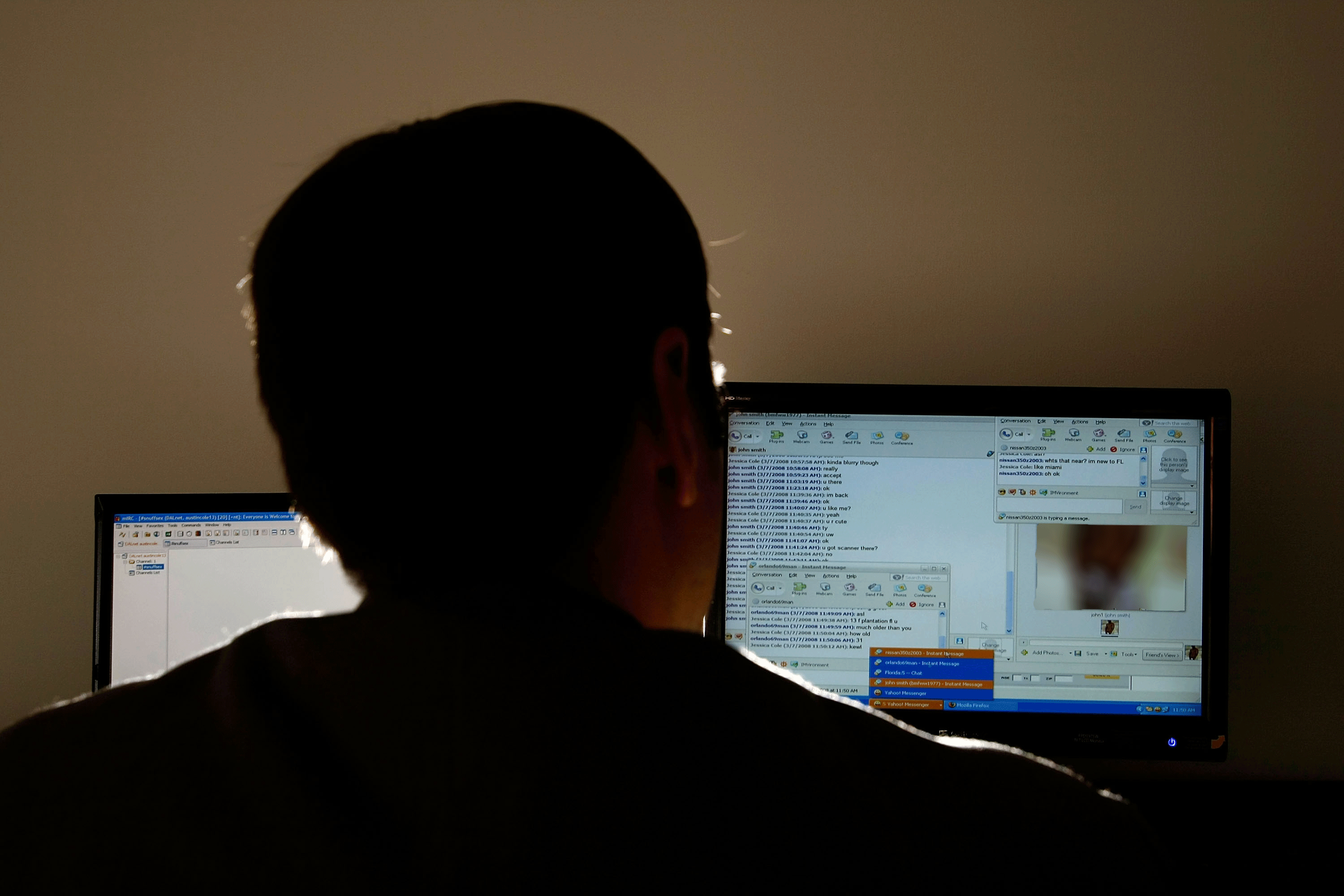Paedophiles could be offered counselling to combat 'massive' online child pornography problem
The National Crime Agency is seeking new ways to ‘improve offending behaviour'

Your support helps us to tell the story
From reproductive rights to climate change to Big Tech, The Independent is on the ground when the story is developing. Whether it's investigating the financials of Elon Musk's pro-Trump PAC or producing our latest documentary, 'The A Word', which shines a light on the American women fighting for reproductive rights, we know how important it is to parse out the facts from the messaging.
At such a critical moment in US history, we need reporters on the ground. Your donation allows us to keep sending journalists to speak to both sides of the story.
The Independent is trusted by Americans across the entire political spectrum. And unlike many other quality news outlets, we choose not to lock Americans out of our reporting and analysis with paywalls. We believe quality journalism should be available to everyone, paid for by those who can afford it.
Your support makes all the difference.The head of the National Crime Agency (NCA) has suggested people who look at online paedophilia should be sent for counselling by charities – to allow police to "focus" on those who actually abuse children.
The comments, made in an interview with The Times, discussed the “massive” problem of online paedophilia and the need to find new ways to tackle the issue.
In its annual report, the Internet Watch Foundation highlighted a “staggering” increase in child pornography online.
Speaking on the issue of paedophiles accessing such content, Lynne Owens, the agency’s director-general, said: “[If] it looks like they're not individually engaged in abusing children, they are just viewing the images, but we want them to stop, you can see it could be possible, with a whole load of ethical checks and balances, to try and make contact with them overtly and get them to engage with charities to improve their offending behaviour.
“I think we need to increase our focus on those who are involved in the actual abuse. One of the things we are now looking at is how confident could we be that somebody who is viewing images online is not abusing children themselves.”
As well as tackling those looking at the supposedly low-level images, Ms Owens said the counselling method could also be used to approach those online paedophiles whose identities were unknown.
However, responding to the comments, an NSPCC spokesman told The Independent: “Viewing child abuse imagery online is not a victimless crime and many people who view what the law classes as low-level images will already pose, or go on to pose, a risk to children.
“So while any action that deters people from viewing these images is welcome, and counselling may be effective in some cases at preventing an escalation of offending behaviour, this should only be offered once the crime has been properly assessed and investigated.
“Prosecuting offenders also makes clear to society that viewing child abuse imagery is wrong and has serious consequences; deterrence as well as counselling is an important part of prevention. And it demonstrates to victims that police take this issue seriously, and may enable the police to identify those in need of protection or support.
“Tackling child sexual abuse has been prioritised as a national threat – like terrorism and organised crime. So if police are overwhelmed by the challenge the Government must ensure they have the resources to get the job done.”
A spokesperson for the NCA, seeking to clarify the comments made by Ms Owens, said: “There can be no soft option for dealing with the crime of child abuse. Anyone viewing indecent images of children or physically abusing them in person should expect to be pursued through the criminal justice process.
“What we are talking about here is activity on top of criminal justice, not instead of it. As well as identifying and prosecuting offenders we need to find a way to intervene before an image offender becomes a contact abuser.
“Our priority is protecting children, and one way to do that is by preventing future abuse taking place and ensuring that there is no longer a ‘customer’ for this horrendous crime.”
The IWF's report, published on Thursday, said there had been a “staggering” increase in the number of child sex abuse images and videos online.
According to their statistics there has been a 417 per cent rise in the number of reported URL’s containing sexual abuse images and videos since 2013, and each confirmed URL could contain “one or a thousand images”. Illegal child abuse imagery had also increased 118 per cent since 2014.
The analysis by IWF also found 69 per cent of victims were 10 or younger, 1,788 victims were believed to be aged two or younger, and a third of all images involved the rape or sexual torture of children.
However, Lisa Stacey of IWF, said despite this the situation is improving, at least in the UK. She said: “We work very closely with the National Crime Agency and our partnership approach with both law enforcement and the internet industry is proving effective in ensuring the UK is a hostile place to host child sexual abuse images and videos online.
“When we started work, nearly twenty years ago, 18 per cent of the world’s online child sexual abuse material was hosted in the UK. Thanks to our analysts, that figure is down to 0.2 per cent today.”
Join our commenting forum
Join thought-provoking conversations, follow other Independent readers and see their replies
Comments